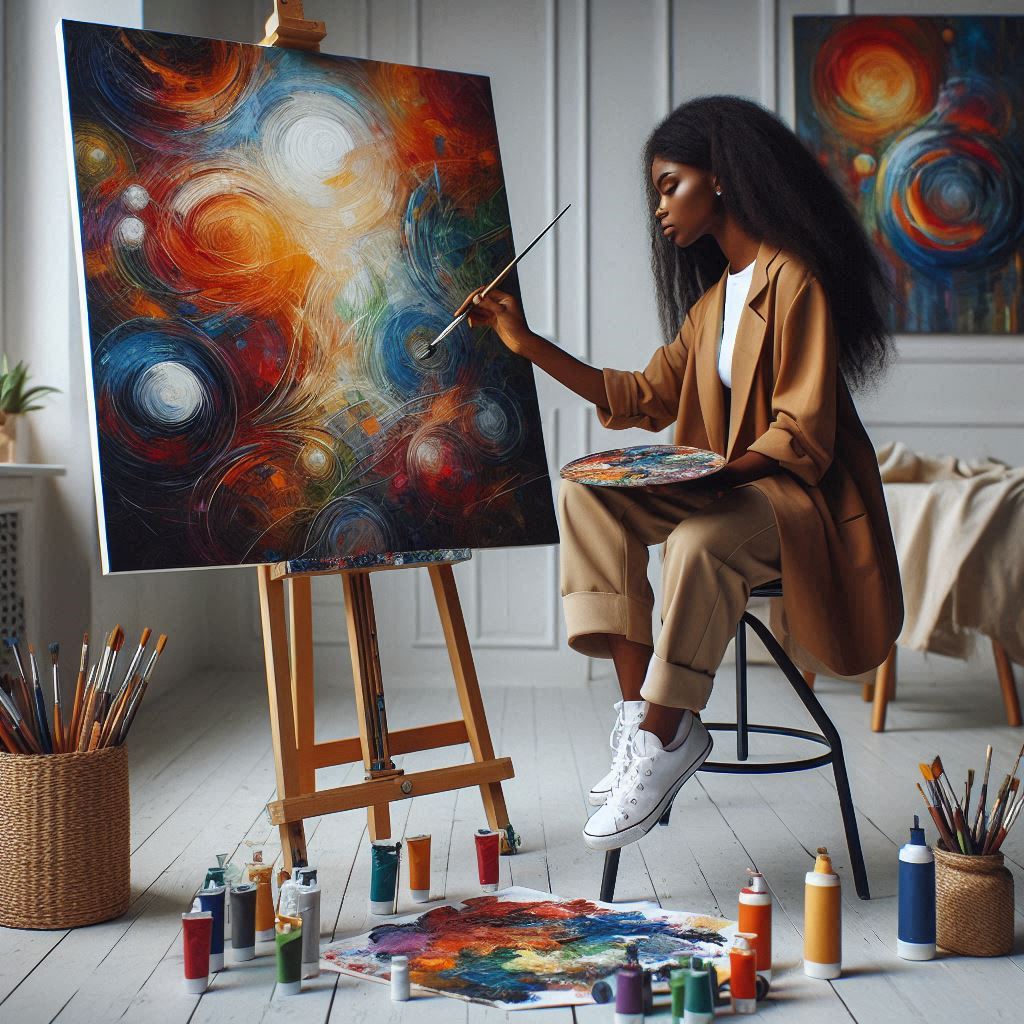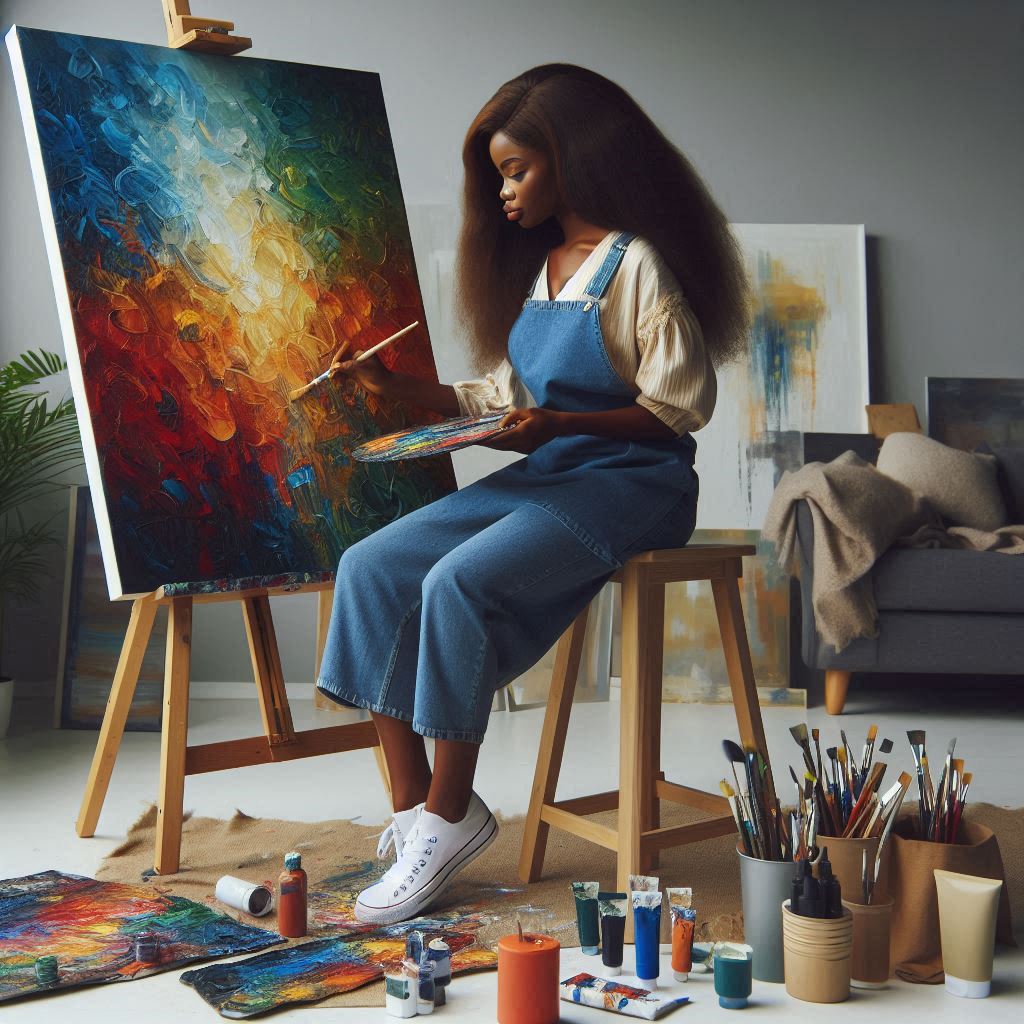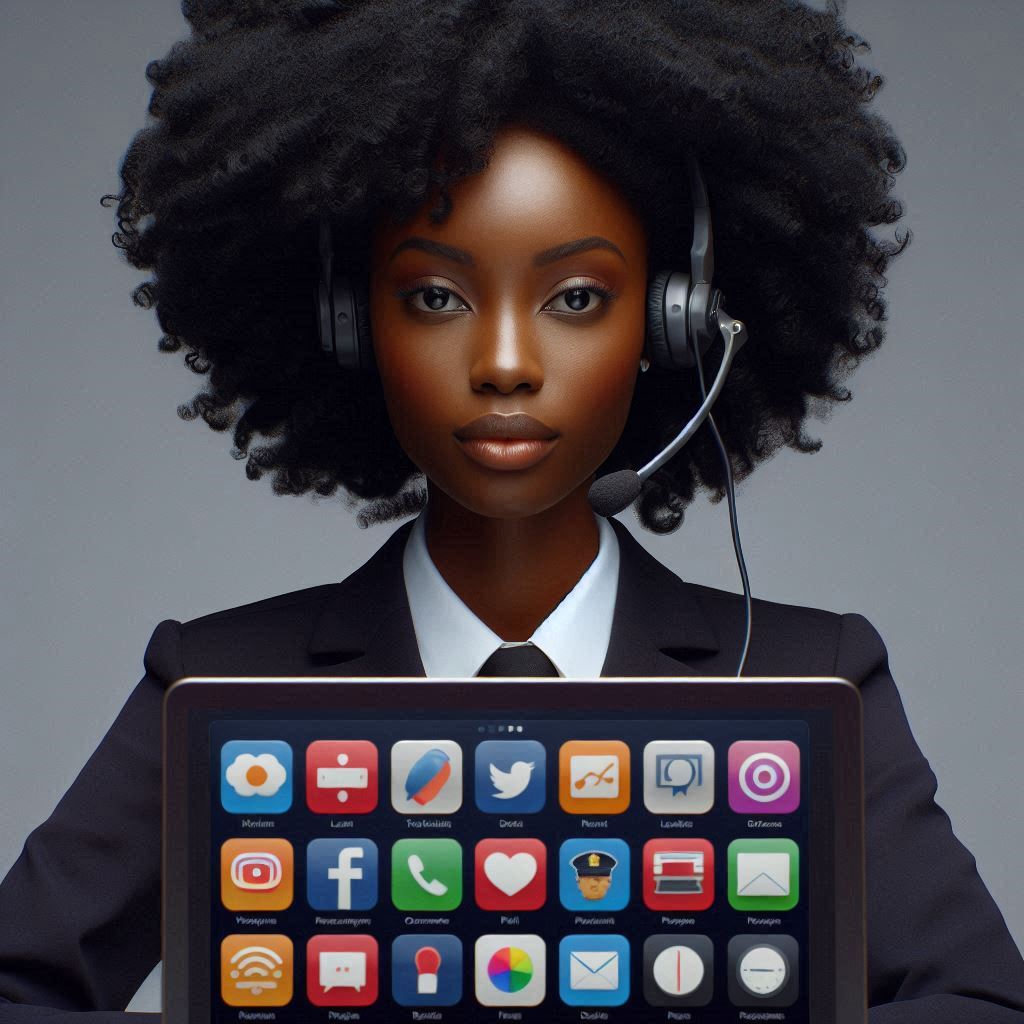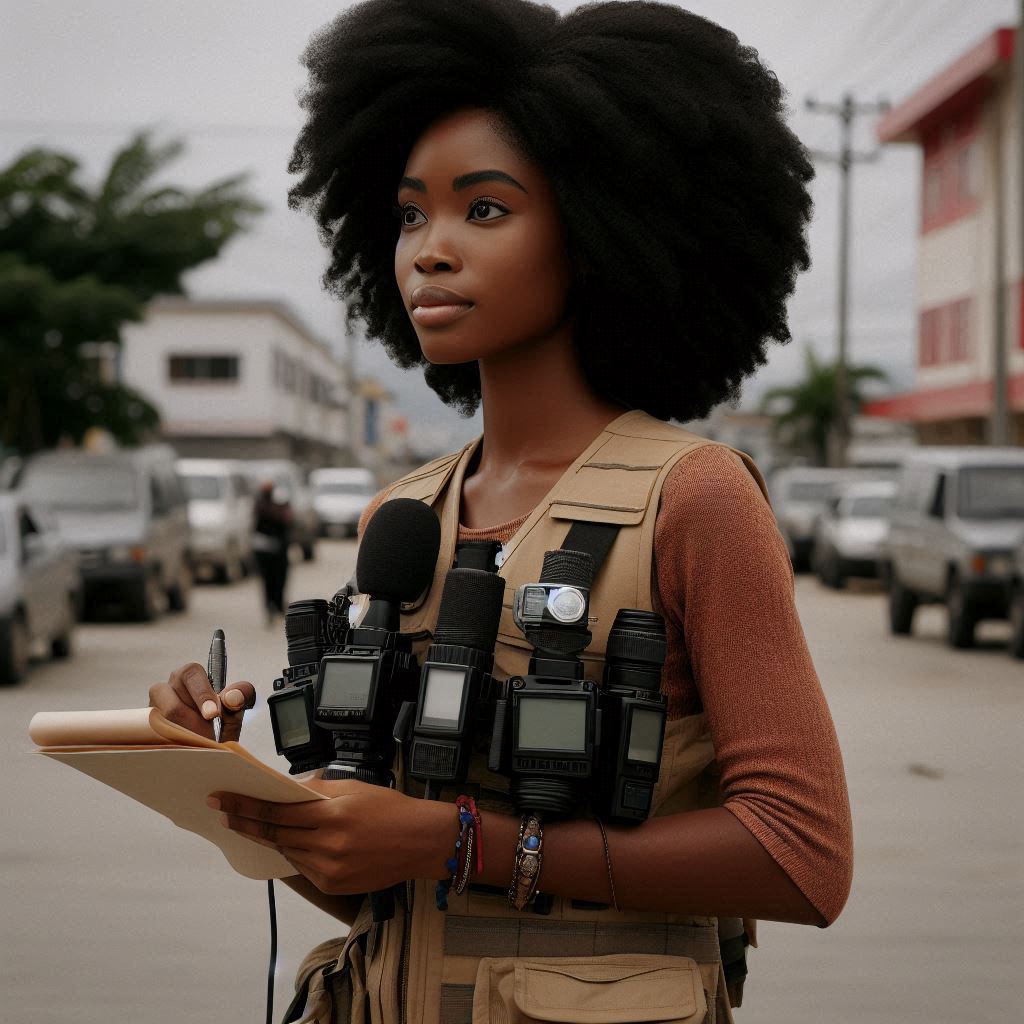Introduction
Nigeria, with its diverse cultural heritage, stands as a beacon in the global arts scene. Its rich tapestry of traditions, languages, music, and arts reflects the country’s vibrant history and dynamic present.
From the Igbo to the Yoruba, the Hausa to the Fulani, Nigeria boasts over 250 ethnic groups, each contributing unique elements to the nation’s cultural mosaic.
Nigerian Cultural Heritage
Nigerian cultural heritage encompasses a wide array of artistic expressions, including traditional music, dance, sculpture, literature, and fashion.
These traditions are deeply rooted in the country’s history, spanning centuries of cultural evolution and societal change.
From the iconic Benin bronzes to the intricate beadwork of the Yoruba, Nigeria’s artistic heritage is as diverse as it is captivating.
Importance of Preservation
Preserving Nigerian cultural heritage is crucial for maintaining the country’s identity and fostering a sense of pride among its people.
In an increasingly globalized world, where cultural homogenization threatens to erase unique traditions, safeguarding Nigeria’s cultural heritage becomes paramount.
It serves as a link to the past, connecting present generations with their ancestors and shaping the future.
Promoting Nigerian Culture Globally
Promoting Nigerian cultural heritage on the global stage not only showcases the country’s artistic prowess but also fosters cross-cultural understanding and appreciation.
Through exhibitions, performances, and collaborations with international artists, Nigerian cultural heritage can reach audiences worldwide, fostering dialogue and exchange.
By sharing its rich cultural tapestry with the world, Nigeria can inspire creativity, challenge stereotypes, and promote cultural diversity.
Challenges and Opportunities
However, preserving and promoting Nigerian cultural heritage comes with its challenges. Economic constraints, political instability, and the impact of globalization pose significant threats to traditional practices and artistic expressions.
Yet, these challenges also present opportunities for innovation and adaptation.
Leveraging digital technologies, engaging with diaspora communities, and investing in cultural education are essential strategies for safeguarding Nigeria’s cultural heritage for future generations.
Basically, Nigerian cultural heritage is a treasure trove of artistic expression and historical significance. Its preservation and promotion are not only vital for Nigeria but also for the global arts community.
By recognizing the importance of Nigeria’s cultural heritage and investing in its preservation and promotion, we can ensure that future generations continue to be inspired by its beauty and complexity.
Nigerian Traditional Arts: A Rich Tapestry of Culture
Nigeria’s traditional arts are a vibrant reflection of its diverse cultural heritage. From sculpture to pottery, these art forms encapsulate centuries of tradition and creativity.
Nigerian sculpture is renowned for its intricate detail and expressive forms. Artists skillfully carve wood, bronze, and terracotta to depict figures from mythology, folklore, and daily life.
Pottery in Nigeria is both utilitarian and artistic. Skilled potters mold clay into pots, bowls, and vessels adorned with elaborate patterns and symbols, showcasing the fusion of functionality and aesthetics.
Nigerian textiles are a riot of colors and patterns, woven with intricate designs that carry deep cultural significance. From the vibrant Adire cloth to the delicate Aso-oke, each fabric tells a unique story.
The Influence of Nigerian Traditional Arts on Global Movements
Nigeria’s traditional arts have left an indelible mark on global art movements, influencing artists and designers around the world.
Nigerian sculptures have inspired modern artists to explore new forms and techniques. The expressive power and spiritual depth of Nigerian sculpture resonate in contemporary works, bridging the gap between tradition and innovation.
The earthy elegance of Nigerian pottery has found resonance in contemporary ceramics. Artists worldwide draw inspiration from Nigerian techniques and motifs, infusing their creations with a sense of cultural heritage and modernity.
Nigerian textiles have captivated the fashion world with their bold colors and intricate patterns. Designers from Paris to New York incorporate Nigerian fabrics into their collections, celebrating the country’s rich textile heritage on the global stage.
As Nigeria embraces modernity, preserving its traditional arts becomes paramount. By celebrating and promoting Nigerian traditional arts, we not only honor our cultural heritage but also inspire future generations of artists to continue the legacy of creativity and innovation.
A Cultural Mosaic in Global Arts
Nigerian traditional arts stand as a testament to the country’s rich cultural tapestry.
From sculpture to pottery to textiles, these art forms continue to inspire and influence global art movements, bridging the past with the present and shaping the future of creativity and expression.
Read: The Role of Psychology in Nigerian Corporate Sector
Contemporary Nigerian Artists: Ambassadors of Culture
Nigeria, a land rich in tradition and history, boasts a vibrant contemporary art scene.
Let’s delve into the profiles of Nigerian artists who are making waves on the global stage, and explore how their work serves as a reflection of the country’s rich cultural heritage.
Njideka Akunyili Crosby: Bridging Worlds
Njideka Akunyili Crosby, born in Enugu, Nigeria, seamlessly weaves together her Nigerian roots and American experiences in her art.
Her paintings depict intimate scenes that reflect the complexities of identity and cultural fusion.
El Anatsui: Master of Transformation
El Anatsui’s monumental installations, crafted from discarded materials like bottle caps and metal scraps, transcend boundaries. His shimmering tapestries evoke traditional Nigerian textiles while addressing themes of consumption and globalization.
Peju Alatise: Narrating Feminine Realities
Peju Alatise’s multidisciplinary approach encompasses sculpture, painting, and literature, often exploring the experiences of Nigerian women. Her work delves into societal norms and challenges, offering poignant commentary on gender roles and identity.
Yinka Shonibare: Deconstructing Colonial Legacies
Yinka Shonibare’s provocative art challenges Eurocentric narratives of history and power. Through his use of African fabrics and colonial imagery, he critiques the lingering impact of colonialism on Nigerian identity and culture.
Victor Ekpuk: Expressing Symbols of Heritage
Victor Ekpuk’s intricate calligraphic drawings are a visual exploration of Nigerian symbols and proverbs. His work serves as a bridge between past and present, inviting viewers to contemplate the richness of Nigerian cultural heritage.
Reflecting Nigerian Cultural Heritage
These artists, each with their unique style and perspective, serve as cultural ambassadors for Nigeria on the global stage. Their work transcends geographical boundaries, offering insights into the complexities and richness of Nigerian heritage.
Through vibrant colors, intricate patterns, and thought-provoking themes, they celebrate Nigeria’s diverse cultural tapestry while engaging with contemporary issues.
Their art becomes a medium through which Nigerian traditions are preserved, reinterpreted, and shared with the world.
In a rapidly globalizing world, the significance of maintaining cultural identity cannot be overstated.
These artists navigate the complexities of cultural exchange,
infusing their work with elements of Nigerian heritage while embracing the influences of the global art scene.
Their success underscores the universal appeal of art that is deeply rooted in tradition yet speaks to contemporary realities.
As they continue to garner international acclaim, Nigerian artists inspire audiences worldwide to appreciate the richness and diversity of African culture.
Read: How to Start a Private Psychology Practice in Nigeria
Nigerian music and dance
Nigeria, with its rich cultural heritage, boasts a diverse array of musical genres that captivate audiences worldwide.
From the infectious rhythms of Afrobeat to the soulful melodies of Highlife and the hypnotic sounds of Juju,
Nigerian music reflects the nation’s vibrant tapestry of traditions and influences.
Afrobeat: A Cultural Phenomenon
Afrobeat, pioneered by the legendary Fela Kuti, combines traditional Nigerian rhythms with jazz, funk, and high-energy percussion.
Its politically charged lyrics and pulsating beats resonate with audiences globally,
serving as a powerful vehicle for social commentary and activism.
Highlife: A Celebration of Life
Highlife, characterized by its upbeat tempo and melodious guitar lines,
originated in Ghana but found a home in Nigeria, where it evolved into a distinctive genre.
With its themes of joy, love, and community, Highlife embodies the spirit of celebration and resilience ingrained in Nigerian culture.
Juju: The Magic of Tradition
Juju music, rooted in Yoruba folklore and traditional rhythms, enchants listeners with its intricate percussion patterns and hypnotic melodies.
Often accompanied by talking drums, guitars, and brass instruments, Juju transports audiences to a realm where tradition meets modernity.
Global Impact of Nigerian Music and Dance
The influence of Nigerian music and dance extends far beyond its borders,
shaping global entertainment trends and inspiring artists across genres.
From Grammy-winning albums to chart-topping collaborations, Nigerian musicians have made an indelible mark on the international music scene.
Cultural Exchange Through Music
Nigerian artists, such as Burna Boy, Wizkid, and Tiwa Savage,
have garnered acclaim on the global stage, collaborating with renowned musicians and performing at major festivals worldwide.
Their success not only showcases Nigerian talent but also fosters cultural exchange and appreciation.
Driving Economic Growth
The music and dance industry in Nigeria contributes significantly to the country’s economy,
providing employment opportunities and generating revenue through live performances, music sales, and licensing deals.
Moreover, the global popularity of Nigerian music attracts tourists and investors, further bolstering economic growth.
Nigerian music serves as a unifying force, transcending cultural and geographical boundaries to foster connections among people from diverse backgrounds.
Whether it’s through shared dance moves or singing along to familiar tunes,
music has the power to bring communities together and celebrate their heritage.
Preserving Cultural Heritage
In addition to its commercial success, Nigerian music plays a crucial role in preserving cultural heritage and identity.
Through lyrics that celebrate Nigerian languages, traditions,
and values, musicians uphold the legacy of their ancestors and ensure that future generations remain connected to their roots.
Generally, Nigerian music and dance embody the essence of a nation rich in culture and creativity.
From its traditional rhythms to its modern innovations,
Nigerian music continues to inspire, entertain, and unite people across the globe, leaving an enduring legacy on the world stage.
Read: Bridging the Gap in Nigerian Mental Health Services

Nollywood and Nigerian literature
As we delve into the realm of Nigerian cultural heritage in global arts, it is essential to explore the significant impact of Nollywood and Nigerian literature on the world stage.
Transform Your Career with Expert Guidance
Get personalized mentorship consulting that’s tailored to your unique path. Our expert advice is actionable and exclusive.
Get StartedOverview of Nollywood film industry and its global influence
Nollywood, the Nigerian film industry, has experienced exponential growth over the years, becoming the third-largest film industry globally.
It is known for producing a vast number of films each year, characterized by their unique storytelling and cultural richness.
One of the key factors contributing to the success of Nollywood is its ability to resonate with audiences worldwide, particularly within the African diaspora.
The industry has played a crucial role in representing Nigerian culture and showcasing diverse narratives on screen.
Moreover, Nollywood has been instrumental in shaping the perception of Africa in the global entertainment landscape.
Its influence can be seen in the rise of African cinema and the increasing popularity of African storytelling in mainstream media.
Renowned Nigerian authors and their contributions to global literature
Nigeria boasts a rich literary tradition, with many prolific authors making significant contributions to global literature.
Writers such as Chinua Achebe, Wole Soyinka, and Chimamanda Ngozi Adichie have become household names, known for their impactful storytelling and powerful narratives.
Chinua Achebe, often referred to as the “father of African literature,” is best known for his novel “Things Fall Apart,” which has been translated into numerous languages and is considered a seminal work in African literature.
His writing explores themes of colonialism, cultural identity, and the clash of tradition and modernity.
Wole Soyinka, the first African to win the Nobel Prize in Literature,
is renowned for his plays, poetry, and essays that address political and social issues in Nigeria and beyond.
His works reflect his commitment to social justice and artistic freedom.
Chimamanda Ngozi Adichie, a contemporary Nigerian author,
has gained international acclaim for her novels such as “Half of a Yellow Sun” and “Americanah.”
Her writing delves into themes of feminism, race, and the complexities of Nigerian society, resonating with readers across the globe.
These Nigerian authors have not only elevated the country’s literary heritage but have also enriched global literature with their unique perspectives and powerful storytelling.
In general, Nollywood and Nigerian literature play a crucial role in showcasing Nigeria’s rich cultural heritage and contributing to the diversity and richness of global arts.
The influence of Nigerian artists and storytellers continues to grow,
shaping the narratives and representations of Africa on the world stage.
Read: The Future of Psychology Education in Nigeria
Gain More Insights: Global Conflict Resolution: Nigerian Academic Insights
Explore Further: Comparative Politics: Nigeria vs Other African Countries
See Related Content: Study Abroad Programs for Nigerian Language Students
Challenges in preserving Nigerian cultural heritage in global arts
Preserving Nigerian cultural heritage in global arts comes with its own set of challenges.
From cultural appropriation to lack of government support,
there are several hurdles that need to be overcome to ensure the authenticity and representation of Nigerian culture in the global art scene.
Cultural appropriation and misrepresentation of Nigerian culture in global art
Cultural appropriation is a significant challenge when it comes to preserving Nigerian cultural heritage in global arts. Many times, elements of Nigerian culture are borrowed or imitated without proper understanding or respect for their significance.
This can lead to misrepresentation and distortion of the original cultural context,
leading to a loss of authenticity and dilution of the cultural heritage.
One of the main issues with cultural appropriation is the lack of acknowledgment and credit given to the original source of inspiration.
When Nigerian cultural elements are used in global arts without proper attribution,
it diminishes the value and importance of the cultural heritage.
This is not only disrespectful to the Nigerian people but also perpetuates stereotypes and misinformation about the culture.
To address this challenge, it is essential for artists and creators to educate themselves about the cultural significance of the elements they are incorporating into their work.
By showing respect for the origins of the cultural heritage and seeking permission or collaboration with Nigerian artists or cultural experts, they can ensure that their representation is authentic and respectful.
Lack of government support for promoting Nigerian cultural heritage
Another significant challenge in preserving Nigerian cultural heritage in global arts is the lack of government support for promoting and preserving the culture.
Without adequate funding, resources, and infrastructure, it becomes difficult to showcase Nigerian cultural heritage on a global platform and ensure its longevity and sustainability.
Government support is crucial in providing opportunities for Nigerian artists and cultural practitioners to showcase their work internationally,
participate in global art events, and collaborate with artists from other countries.
Without this support, Nigerian cultural heritage risks being overshadowed by other cultures with stronger financial backing and institutional support.
One way to address this challenge is for the government to invest in cultural education,
training, and infrastructure to support the preservation and promotion of Nigerian cultural heritage.
By providing funding for cultural institutions, museums, galleries, and art programs,
the government can ensure that Nigerian culture is properly represented and valued in the global art scene.
In a nutshell, while there are challenges in preserving Nigerian cultural heritage in global arts,
there are also opportunities for growth and development.
By addressing issues such as cultural appropriation and lack of government support,
we can work towards a more inclusive and authentic representation of Nigerian culture in the global art world.
Initiatives Promoting Nigerian Cultural Heritage in Global Arts
Organizations and Events
Nigeria’s rich cultural heritage shines through various organizations and events dedicated to showcasing its diversity.
From the vibrant rhythms of traditional music to the intricate designs of indigenous crafts,
these platforms serve as vital conduits for preserving and celebrating Nigeria’s artistic legacy.
One notable organization making waves in promoting Nigerian culture globally is the Nigerian Cultural Foundation (NCF).
Established in 1990, NCF has been at the forefront of preserving and promoting Nigeria’s diverse cultural heritage through various initiatives, including exhibitions, workshops, and cultural exchanges.
NCF’s annual flagship event, the Nigerian Arts and Culture Festival, attracts artists, scholars, and enthusiasts from around the world.
This festival serves as a vibrant tapestry of Nigerian art, music, dance, and cuisine,
offering visitors a glimpse into the nation’s rich cultural tapestry.
Moreover, organizations like the Society of Nigerian Artists (SNA) provide platforms for Nigerian artists to showcase their works both locally and internationally.
Through exhibitions and collaborations with international art institutions,
SNA fosters cross-cultural dialogue and promotes Nigerian artistic excellence on the global stage.
Collaborations with International Art Institutions
In recent years, there has been a surge in collaborations between Nigerian artists and international art institutions,
further elevating the visibility of Nigerian cultural heritage on a global scale.
These partnerships serve as catalysts for cultural exchange and mutual understanding.
One such collaboration is the ongoing partnership between Nigerian fashion designers and prestigious fashion houses in Paris,
Milan, and New York.
By infusing traditional Nigerian textiles and motifs into contemporary designs,
these collaborations not only showcase Nigeria’s rich textile heritage but also challenge stereotypes and redefine global fashion trends.
Additionally, Nigerian filmmakers are gaining recognition on the international stage, thanks to collaborations with renowned film festivals and production companies.
Through powerful storytelling and compelling visuals, these filmmakers offer audiences worldwide a window into the complexities of Nigerian society and culture.
Furthermore, Nigerian musicians are collaborating with global superstars, blending traditional rhythms with modern sounds to create captivating music that transcends borders.
These collaborations not only celebrate Nigeria’s musical heritage but also amplify its cultural influence on the global stage.
In fact, initiatives promoting Nigerian cultural heritage in global arts are vital for preserving and celebrating Nigeria’s rich artistic legacy.
Through organizations, events, and collaborations with international institutions, Nigerian artists are leaving an indelible mark on the global cultural landscape, enriching it with their creativity, diversity, and unique perspectives.
Delve into the Subject: Influential Nigerian Scholars in Comparative Politics
See Related Content: Understanding Film Licensing Laws in Nigeria
Delve into the Subject: Key Skills for Communication Studies Students in Nigeria
Conclusion
Recap of the Significance of Nigerian Cultural Heritage in Global Arts
Nigerian cultural heritage is a vibrant tapestry, influencing art worldwide. Traditional dances, like the energetic Ekombi, captivate audiences.
The intricate beadwork of Yoruba culture adorns fashion runways, blending tradition with modernity seamlessly.
Nollywood, Nigeria’s film industry, showcases rich narratives, captivating audiences globally with its storytelling prowess.
Visual arts, from Benin bronzes to contemporary sculptures, reflect Nigeria’s diverse cultural landscape, preserving history and identity.
Literature, exemplified by Chinua Achebe and Chimamanda Ngozi Adichie, amplifies Nigerian voices, sparking dialogue and understanding.
Music, from Afrobeat to highlife, pulses with the rhythm of Nigeria, influencing genres worldwide and uniting listeners across cultures.
Nigerian cuisine tantalizes taste buds, with dishes like jollof rice and suya gaining popularity on international menus, celebrating culinary heritage.
Architecture, from the ancient city of Benin to modern skyscrapers in Lagos, showcases Nigeria’s rich history and dynamic growth.
Call to Action for Supporting and Celebrating Nigerian Artists Preserving Cultural Heritage through Their Work
As guardians of Nigeria’s cultural legacy, artists need support. Let’s patronize Nigerian art, both locally and globally, fostering growth and appreciation.
By attending exhibitions, purchasing artworks, and engaging with Nigerian artists, we contribute to the preservation of cultural heritage.
Encourage educational initiatives that teach Nigeria’s cultural richness in schools, fostering pride and understanding among future generations.
Advocate for policies that protect and promote Nigerian cultural heritage, ensuring its preservation for generations to come.
Let’s amplify Nigerian voices in the arts, providing platforms for artists to share their stories and perspectives with the world.
Engage in cultural exchanges and collaborations, bridging gaps and fostering mutual respect and appreciation for Nigeria’s cultural heritage.
Support initiatives that empower Nigerian communities through art, promoting socio-economic development and cultural sustainability.
Together, let’s celebrate Nigeria’s rich cultural heritage and the artists dedicated to preserving it through their creative endeavors.
In closing, Nigerian cultural heritage holds immense significance in global arts, enriching the world with its diversity and creativity.
As stewards of this heritage, it’s our responsibility to support and celebrate Nigerian artists, ensuring the preservation and continued flourishing of this invaluable cultural legacy.




